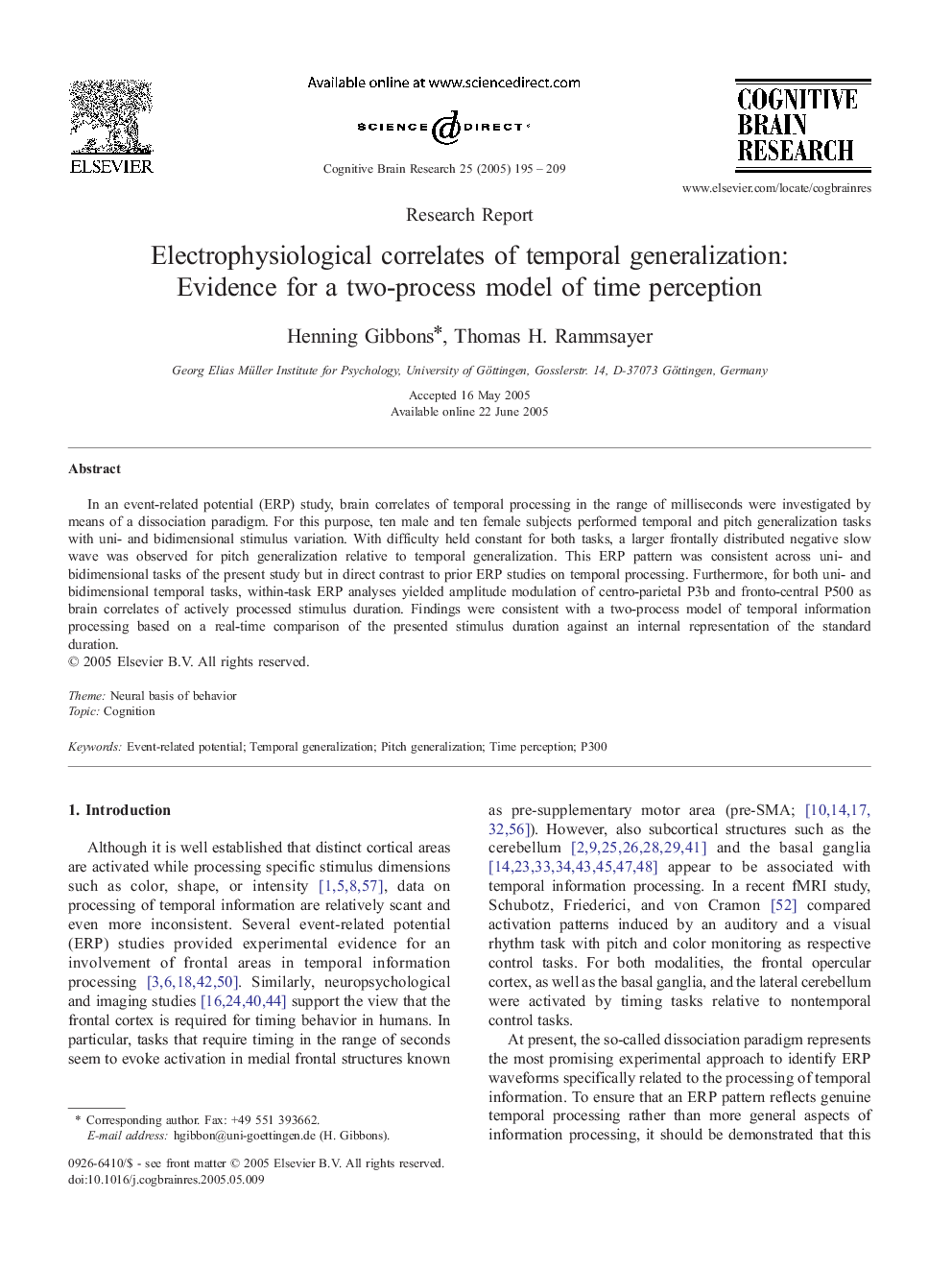| Article ID | Journal | Published Year | Pages | File Type |
|---|---|---|---|---|
| 9408067 | Cognitive Brain Research | 2005 | 15 Pages |
Abstract
In an event-related potential (ERP) study, brain correlates of temporal processing in the range of milliseconds were investigated by means of a dissociation paradigm. For this purpose, ten male and ten female subjects performed temporal and pitch generalization tasks with uni- and bidimensional stimulus variation. With difficulty held constant for both tasks, a larger frontally distributed negative slow wave was observed for pitch generalization relative to temporal generalization. This ERP pattern was consistent across uni- and bidimensional tasks of the present study but in direct contrast to prior ERP studies on temporal processing. Furthermore, for both uni- and bidimensional temporal tasks, within-task ERP analyses yielded amplitude modulation of centro-parietal P3b and fronto-central P500 as brain correlates of actively processed stimulus duration. Findings were consistent with a two-process model of temporal information processing based on a real-time comparison of the presented stimulus duration against an internal representation of the standard duration.
Keywords
Related Topics
Life Sciences
Neuroscience
Behavioral Neuroscience
Authors
Henning Gibbons, Thomas H. Rammsayer,
